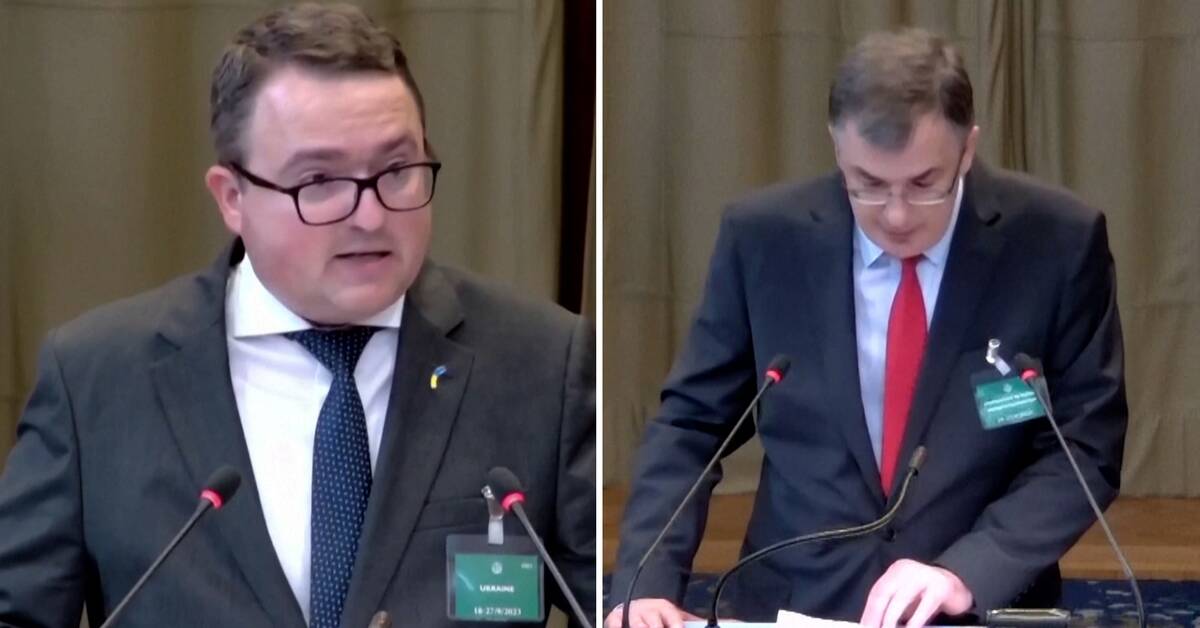When Russia first invaded Ukraine in 2014, it was on the grounds that Ukraine was carrying out genocide against Russian-speaking residents.
Last year, Ukraine sued Russia in the International Court of Justice (ICJ) in The Hague, to prove that it did not commit any genocide and that it is instead Russia that has distorted the convention for its own gain.
On 18 September, negotiations resumed, which are now expected to last between 18-27 September.
In addition to Ukraine, 32 states have decided to support the country. These include Canada, Australia and all EU countries except Hungary.
Russia wants the charges dropped
Russia was the first on Monday to make its case on the ongoing case.
"Ukraine's claims themselves and tactics in these negotiations clearly show that they are flouting due process," said Gennady Guzmin, ambassador to the Russian Foreign Ministry.
On Tuesday, it was Ukraine's turn.
"Russia abused and violated the Genocide Convention by using accusations of genocide as a pretext for a full-scale invasion," said Anton Korynevych, spokesman for Ukraine.
A question of jurisdiction
In a preliminary court hearing in March last year, the ICJ ordered Russia to end all military operations immediately.
Russia has ignored the court's order, and the ICJ has no way to enforce the decision.
What is to be decided at the moment is whether the International Court of Justice has jurisdiction to take up the case. That decision will come in about a month.

